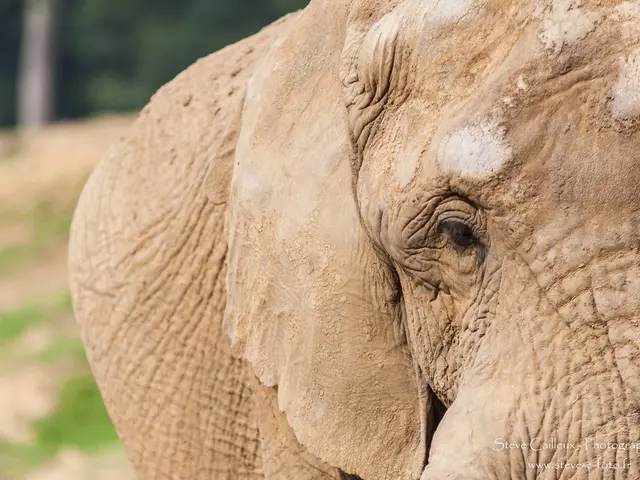Two Individuals Suffered Fatal Consequences from Uncommon Prion Disease. Medical Professionals Speculate an Unprecedented Transmission from Deer.
A new study could be indicating the initial indications of a concerning public health situation: Researchers discovered two recent instances of prion disease—deadly ailments resulting from abnormal proteins—that might have been caused by the victims consuming contaminated deer meat. While this connection is far from definitive, medical professionals are urging for more research into the matter.
This study was released earlier this month in the journal Neurology. It details the case of a 72-year-old man who visited doctors after he started showing signs of confusion and aggression around 2022. Despite receiving treatment for his symptoms, such as seizures, his condition quickly worsened and he died only a month later. An autopsy then revealed that he had developed a sporadic form of Creutzfeldt-Jakob disease (CJD), the most prevalent prion disease in humans. What made this case significant: the man had a hunting buddy in the same lodge who had recently passed away due to CJD and had consumed venison from the same deer population.
CJD and other prion diseases are the result of a distorted version of the prion protein, which are naturally present in the brain and other parts of the body (to this day, we’re unclear about the functions of “normal” prions). Misshapen prions can alter their normal counterparts, eventually leading to the exponential accumulation of these harmful prions, which gradually destroys the brain. Although it can take years, even decades, for this destruction to manifest, there is no cure for prion disease once symptoms emerge.
Other mammals are susceptible to prion diseases. In the 1980s and 1990s, an outbreak of one such illness—bovine spongiform encephalopathy, or mad cow disease—spread widely across farms in the UK; a few years later, it was discovered that a small percentage of people who consumed tainted cow meat contracted their own prion disease, known as variant CJD.
The threat of mad cow was effectively controlled by the late 1990s, and it's estimated that only a few hundred people contracted the disease from consuming contaminated meat. However, another prion ailment has been spreading among deer and related animals in the U.S and Canada as of late, known as chronic wasting disease (CWD). And the recent report's authors suspect that history may be repeating itself.
Most cases of CJD are considered sporadic, appearing without reason. But the victim in this case was a hunter who regularly consumed venison, as was his friend who died of CJD. Prion diseases in humans are incredibly rare, so the fact that these two cases occurred so closely together is noteworthy.
“The patient’s history, including a similar case in his social group, suggests a possible new animal-to-human transmission of CWD,” the report's authors wrote.
Some studies in animals, including non-human primates, have found evidence that CWD prions can potentially infect and sicken humans, while other research has reached the opposite conclusion. So the potential for cross-species transmission remains plausible, although not yet proven. Similar to bacterial and viral diseases, there is a wide range of prion strains that can make humans and animals ill. Although the man was diagnosed with a specific type of sporadic CJD, the doctors argue that more comprehensive testing would be needed to confirm whether the man’s prions were unlike those seen with CWD.
There have been other isolated reports of human CJD linked to the consumption of deer (and even squirrel) meat. These cases alone are not conclusive proof that deer can transmit prion disease to humans, but the report's authors argue that more research is necessary to determine the truth. “This cluster underscores the importance of further investigation into the potential risks of consuming CWD-infected deer and its implications for public health,” they wrote.
The ongoing investigation into the potential link between prion diseases and contaminated meat highlights the need for advanced technologies in research, particularly in the field of science. If the connection between deer meat consumption and prion diseases in humans is proven, it could lead to significant changes in public health guidelines and food safety protocols in the future.
The recent study on the deer meat-related prion disease cases emphasizes the importance of ongoing research in the field of health, technology, and science, to ensure the safety and well-being of both animals and humans.








